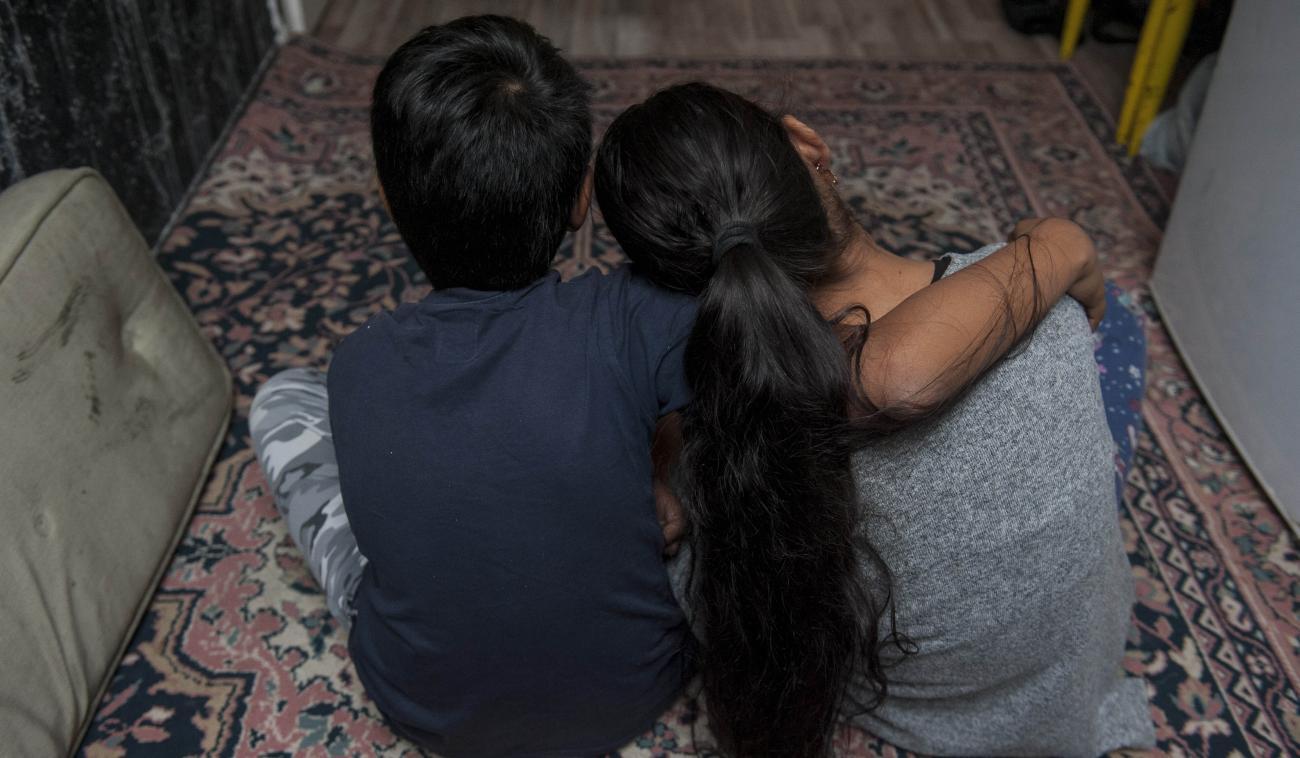Equality now: Changing gender norms and advancing equality on all fronts in Serbia

The UN team in Serbia has long been dedicated to addressing gender inequality, so that no women or girl in Serbia is left behind.
Gender inequality hurts women and girls, and it prevents whole societies from developing.When women are free, equal, and empowered, they are happier and healthier individually, and they contribute more to the lives of their families, communities, and countries.
The UN team in Serbia has long been dedicated to addressing gender inequality, so that no women or girl in Serbia is left behind. This effort has many facets, from ending child marriage to stopping domestic violence to promoting women’s health during COVID-19.
These are some of our stories.
Preventing child marriage
When girls get married young, they are more likely to miss out on school and other opportunities. In Serbia, child marriage is higher in Roma settlements than in the population at large: more than 50% of Roma girls marry before age 18, versus 6% of all girls in Serbia. UNICEF Serbia works to strengthen the role and leadership of Roma communities in tackling child marriage through community dialogue, direct support to families, and successful young Roma role models. UNICEF supports the National Coalition to End Child Marriage, and, from 2018-2020, UNICEF reached girls and their parents in 21 Roma settlements.
Confronting femicide
Like many countries, Serbia does not have comprehensive public policies on preventing femicide—the murder of women, typically by intimate partners. Serbia also lacks records on femicide that can contribute to proper research, identification and understanding the problem in the first place. UN Women in Serbia has developed an interdisciplinary study on femicide in the country which examines the causes, triggers, and responses to femicide. The result of a year of research, the study drew on court judgments, case studies, in-depth interviews with perpetrators, and an examination of how Serbian institutions respond to and collect data on cases of femicide.
Keeping helplines open during COVID-19
Helplines run by community groups are often the first and sometimes the only source of information and support for survivors of gender-based violence. UN Women and UNDP in Serbia are continuously working to make sure these lines are always widely available and visible. During the state of emergency introduced in response to COVID-19, UN Women helped 22 women’s community organizations to keep their helpline services available 24/7, including advice and psychosocial and legal support. UNDP provided sanitation packages and personal protective equipment to three centers for victims of sexual violence and rape, and helped them open additional helplines for women survivors of violence.
Gender responsive budgeting
For women to thrive, resources — policies, programmes, and budgets — must be invested in their wellbeing. This happens under so-called “gender-responsive budgeting,” or GRB, in which officials discuss what women and girls need and how to allocate the resources to fill those needs. UN Women has worked with the Ministry of Finance, the Coordination Body for Gender Equality, and the Provincial Secretariat of Finance. Together, we got 66 of 79 national and provincial institutions to include gender-responsiveness in their 2020 budgets. We have also trained more than 1,300 civil servants on GRB since 2015, and got GRB included in the government’s budget software at the provincial and national levels.
Championing women with disabilities
Everyday things that many people take for granted can seem beyond reach for women and girls with disabilities — especially when it comes to sexual and reproductive health. One in five women and adolescent girls with disabilities in Serbia say they have difficulty accessing needed health services, while one in seven have never had a gynecological examination.
In 2020, UNFPA and NGO Iz Kruga Vojvodina launched a project to tackle this problem. Women from five municipalities are studying reproductive rights, mapping barriers, and creating local solutions. And the COVID-19 pandemic has not stopped them. These five women joined forces with others to create change locally: getting a hydraulic table for gynecological check-ups back into service, making videos about their lives, and engaging with policymakers. Also, UN Women in Serbia organized the country’s first mentoring programme for young women with disabilities, with an inaugural class of ten mentors who advised their mentees on career and life skills.
Taking a circular economy approach
Women and girls suffer disproportionately from the effects of all kinds of waste. They also tend to hold traditional knowledge about sustainable waste practices. UN Women studied waste management practices in Serbian households to understand the role of women in creating and managing waste. Results of the study were used to create public education campaigns on climate action. Later this year, UNDP will help the Government of Serbia leverage financing to transition from a linear economy (production, consumption, disposal) to a circular one (production, consumption, recycling, reuse, carbon reduction). UNDP is creating a challenge as a way of sourcing innovative projects (pilot or no) that go beyond “business as usual” models.
Improving media coverage of violence against women
With the power to transform public opinion and drive social change, the media are key to ending violence against women. Three years ago, UNDP and the B92 fund established a group of women reporters and editors — now including over 60 members— committed to responsible reporting on violence against women. With UNDP’s support, the group has taken to social media to critique stereotypical reporting on violence against women, has produced analyses of reporting on cases of violence against women, including in cases of firearms misuse for violence against women, and developed guidelines for responsible media reporting on the topic. At the end of 2020, the group received the AVON Company’s Women’s Courage Award.





